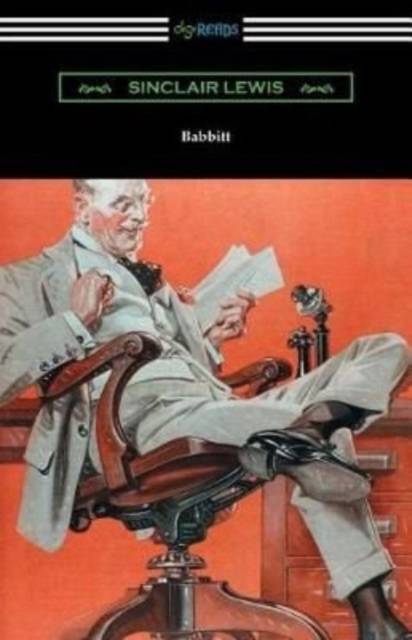
- Retrait gratuit dans votre magasin Club
- 7.000.000 titres dans notre catalogue
- Payer en toute sécurité
- Toujours un magasin près de chez vous
- Retrait gratuit dans votre magasin Club
- 7.000.0000 titres dans notre catalogue
- Payer en toute sécurité
- Toujours un magasin près de chez vous
Description
First published in 1922, "Babbitt" is Sinclair Lewis' satire of American culture in the early part of the 20th century. In the years following World War I Americans began to idealize the middle-class lifestyle as a symbol of success, one crucial to the American identity. The successful self-made family man living in a Midwestern town began to symbolize the "American Dream". The titular character of this novel, George F. Babbitt, is one such man. Babbitt is a successful middle-aged partner in a real estate firm who is married with three kids living in the fictional Midwestern town of Zenith. While having achieved the "American Dream" Babbitt gradually begins to feel a lack of fulfillment with how his life has turned out. He is a man unaware of the contemporary social and economic conditions that exist outside his own small circle. This lack of awareness begins to become increasingly apparent to him and a feeling of consternation sets in. Controversial upon its first publication for its criticism of what many Americans believed to be the ideal life, "Babbitt" is at once the tale of a middle-life crisis and a satirical critique of the vacuity of middle-class American life. This edition is printed on premium acid-free paper and includes an introduction by Hugh Walpole.
Spécifications
Parties prenantes
- Auteur(s) :
- Editeur:
Contenu
- Nombre de pages :
- 274
- Langue:
- Anglais
Caractéristiques
- EAN:
- 9781420958133
- Date de parution :
- 11-06-18
- Format:
- Livre broché
- Format numérique:
- Trade paperback (VS)
- Dimensions :
- 140 mm x 216 mm
- Poids :
- 349 g

Les avis
Nous publions uniquement les avis qui respectent les conditions requises. Consultez nos conditions pour les avis.






